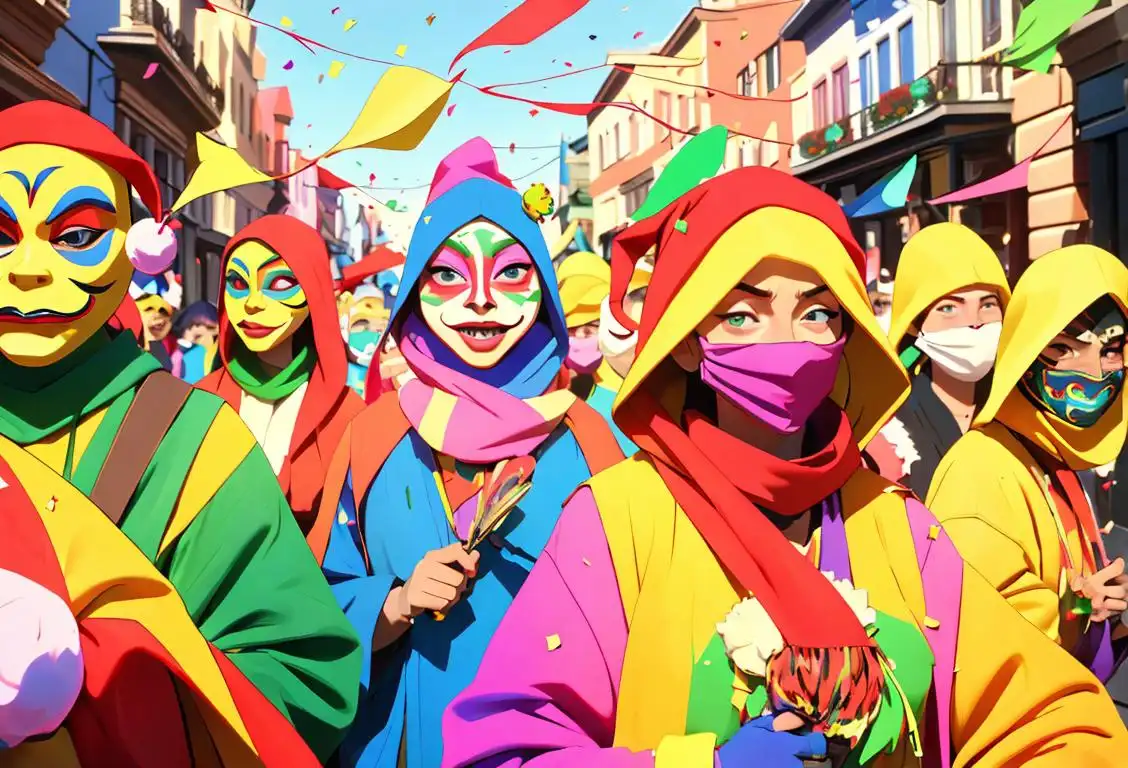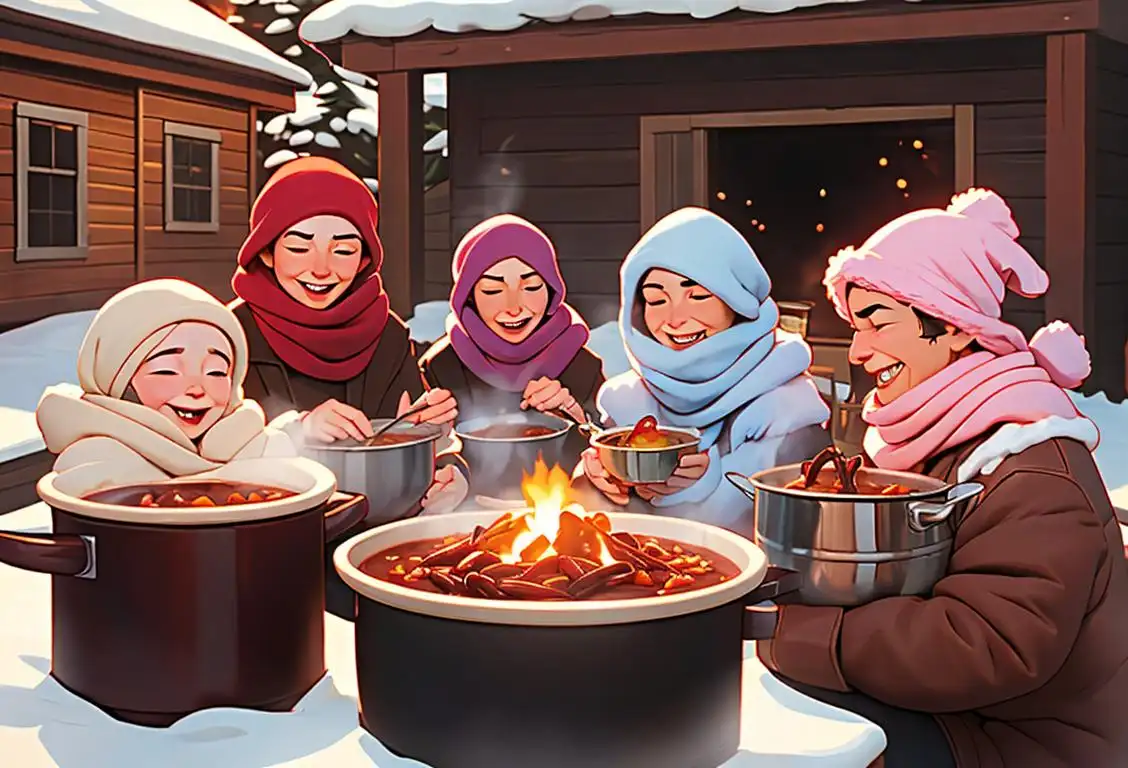National Fasnacht Day

Are you ready to party like it's National Fasnacht Day? Get your confetti cannons and party hats ready because this is one celebration you won't want to miss!
When is Fasnacht Day?
It's national fasnacht day on the 28th February.
The History of National Fasnacht Day
Get ready to dive into the colorful and joyous celebration of National Fasnacht Day! This festive occasion, also known as 'Fat Tuesday,' is a traditional holiday celebrated in various parts of Switzerland, Germany, and Pennsylvania Dutch Country.
The origins of Fasnacht can be traced back to pre-Christian times when people believed that by driving away winter spirits, they could usher in the arrival of spring. The word 'Fasnacht' itself means 'Fasting Night,' referring to the practice of indulging in rich and delicious foods before the fasting period of Lent begins.
During National Fasnacht Day, communities come alive with vibrant parades, lively music, and, of course, scrumptious traditional treats. People wear costumes, masks, and extravagant outfits, adding to the festive atmosphere. It's a day when everyone can let loose, have fun, and celebrate in the most colorful way possible!
History behind the term 'Fasnacht'
1522
Origins in Switzerland
Fasnacht, a term derived from the German words 'Fastnacht' or 'Fasnacht,' has its origins as a traditional Swiss carnival celebration. The first documented usage of the term dates back to the year 1522. Fasnacht typically refers to the pre-Lenten festivities celebrated with various customs, parades, and events.
17th Century
Religious Influence
During the 17th century, the Catholic Church played a significant role in shaping the traditions associated with Fasnacht. The festivities usually began on the Thursday before Ash Wednesday, known as 'Schmutziger Donnerstag' or 'Dirty Thursday.' Participants would engage in merrymaking, street processions, and masks, offering an opportunity to indulge before the arrival of Lent.
19th Century
Banned and Resurrected
In the early 19th century, Fasnacht celebrations faced restrictions and even outright bans. Authorities in certain regions deemed the festivities as a source of unrest and public disorder. However, the spirit of Fasnacht persevered, and by the mid-19th century, the festivities were revived as a beloved cultural tradition in Switzerland.
20th Century
Expansion to Germany
As the popularity of Fasnacht grew, particularly in the areas bordering Switzerland, the celebration spread to neighboring regions of Germany. These areas would adopt their own version of the carnival, often incorporating local customs and traditions. Fasnacht became an occasion for communities to come together, celebrate, and express their regional identity.
Present Day
Worldwide Recognition
Fasnacht, with its vibrant costumes, lively music, and spirited atmosphere, has gained international recognition as a cultural phenomenon. Beyond Switzerland and Germany, communities around the world now celebrate Fasnacht-inspired events, spreading the joy and traditions of this unique carnival celebration.
Did you know?
Did you know that Fasnacht celebrations in Basel, Switzerland are so significant that they begin with the 'Morgestraich' where city lights are turned off and replaced with lanterns and torches?Tagged
food fun celebrationFirst identified
22nd February 2017Most mentioned on
28th February 2017Total mentions
17Other days
Chocolate Ice Cream Day
Pepperoni Pizza Day
Chili Day
Martini Day
Pizza Party Day
Cheese Pizza Day
Vodka Day
Iced Tea Day
Pina Colada Day
Dumpling Day









